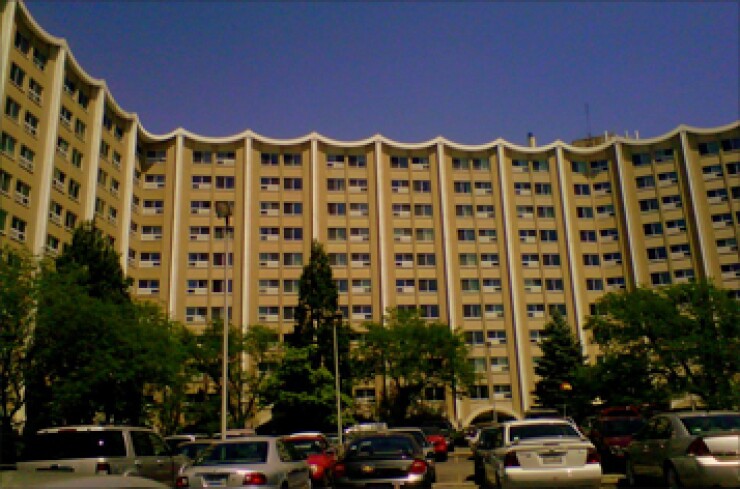
CHICAGO — Freddie Mac's new direct purchase tax-exempt note program has debuted in an affordable-housing project for elderly renters in the Dayton, Ohio area.
The project was also the source of another financial first, of a federal subsidy for senior preservation projects.
The Lakewoods is a 417-unit affordable housing complex for seniors located outside Dayton in suburban Oakwood. The facility is more than 50 years old, and the original Housing of Urban Development loan was maturing this year.
To raise money for badly needed capital investment, the owner, a Cleveland-based firm called Millennia Housing Development, decided to tap the new federal programs.
The Direct Purchase of Tax-Exempt Loans allows borrowers to bypass the traditional tax-exempt bond market by directly placing 16-year government notes with Freddie Mac. Private placements or direct purchases are increasingly popular across the muni sector. Similar deals have spiked in the non-profit health care space over the last several years. They allow issuers to avoid issuance costs, as well as some reporting requirements and the market's relatively high interest rate environment.
"I think it's a really viable product for the market right now and I can see a lot of deals that will go this way," said Sujyot Patel, an attorney with Peck, Shaffer & Williams, a division of Dinsmore & Shohl LLP. Patel specializes in multi- and single-family housing projects and acted as bond counsel on the Lakewoods deal.
"The long-term tax exempt bonds were simply not working in the current interest-rate environment," said Patel. Federal housing officials wanted to craft a new program to give developers incentives to build and preserve rental housing for low-income senior citizens.
"It will keep the project vital for 20 years, with a substantial renovation and the tenants are getting a brand-new facility," he said.
By directly purchasing the notes, Freddie Mac claims that borrowers can save up to 40% off of issuance costs, mostly by not paying investment bankers or their counsel and not having to get ratings.
The terms and criteria of the direct purchase program are similar to the agency's traditional tax-exempt bond and credit enhancement programs. Minimum debt-service coverage ratio is 1.15 times for the fixed-rate debt and the maximum loan-to-value ratio is 85% of adjusted value or 90% of market value.
The notes are structured with a 16-year maturity and feature a 35-year amortization, which is "pretty darn valuable in this market," Patel said.
The Lakewoods' developers interest rate is 4.84%.
The government created the program as an alternative to federal credit enhancement on a traditional bond, particularly for developers who have tapped the 4% Low Income Housing Tax Credit program, officials say in on a web site promoting the program.
Freddie plans to hold the loans on its balance sheets for a while before pooling it with other tax-exempt loans and securitizing them to investors.
"The Direct Purchase of Tax-Exempt Loans offering is more cost efficient for the borrower than publicly offered credit enhanced bonds, and is the first step toward securitization," Kimball Griffith, Freddie Mac Multifamily vice president of affordable sales and investment, said in a statement released after the Lakewoods deal closed.
Lakewoods also marked one of the first uses of the Senior Preservation Rental Assistance Contracts, or SPRAC, program. The program provides subsidies to prevent the displacement of poor and elderly renters by providing grants for capital improvements to projects that were originally funded under Housing Urban Development's so-called 202 program and have interest rates of 6% or less.
Congress in 2012 set aside $16 million for the program. Of that, $14.8 million has been awarded to developers across the country.
The SPRAC funding is an effort to provide developers with the money to make necessary improvements and keep the housing restricted to low-income seniors. The program is in danger of ending if new funding is not allocated, which could make it harder to meet the growing need for affordable senior housing, Patel said.
"They know that when the HUD loans' affordability and rent restrictions go away, the only way the developer makes the project viable is to open it up to people who are not low income or converting it to market rate," he said.





